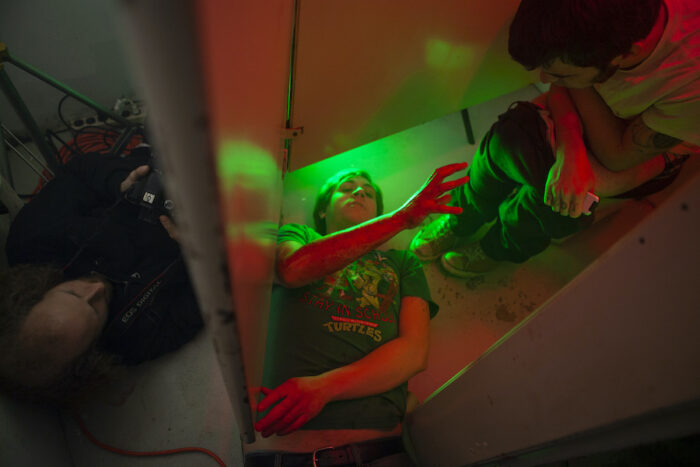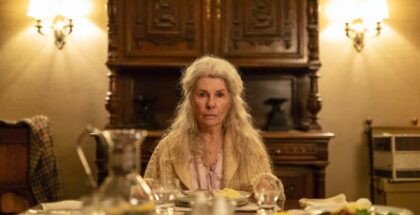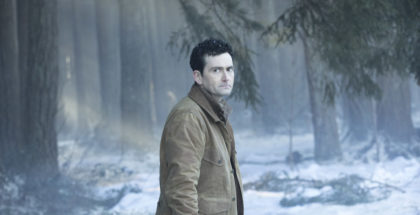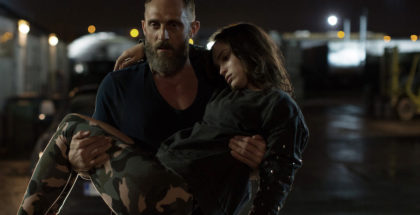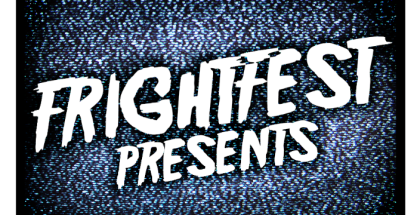FrightFest 2021 film review: The Brilliant Terror
Review Overview
Exposure of grassroots horror
8Excellent interviewees
8Lack of focus
5Anton Bitel | On 26, Aug 2021
Director: Paul Hunt and Julie Kauffman
Cast: Mike Lombardo, Jeremiah Kipp, Ashley Thorpe, Heidi Honeycutt, Julie O’Connor Ufema
Certificate: TBC
Where to watch The Brilliant Terror online in the UK: FrightFest 2021
This film is playing in person at FrightFest 2021 in August – and will stream online as part of the festival’s digital event in September. For more details on the online line-up and how to watch, click here.
“Hello, fucktards, i have a problem with you and anyone associated with you.” The speaker is Mike Lombardo, owner of Reel Splatter Productions, a small horror filmmaking collective based in Lancaster, Pennsylvania – the words, however, are not his own, but rather a death threat that he has received on his group’s social media page, warning that Lombardo and his colleagues will be made “to star in a real snuff film”.
It is an apt introduction to Paul Hunt and Julie Kauffman’s documentary The Brilliant Terror, which has two principal concerns: the sort of grassroots horror filmmaking that Lombardo embodies; and the sense of beleaguerment that horror filmmakers (always themselves also horror consumers) both experience and address in their work. As any horror fan will know, those drawn to the dark, the frightening and the grotesque are often not understood by others, even condemned and pilloried. Some of these will find their own communities at horror festivals and conventions – while others will get together with like-minded folk and whatever equipment they can rustle up to make their own horror movies. It is these people, at the amateur, guerrilla end of the independent sector, often working far from Hollywood and using their own channels of distribution, that form the documentary’s topic, making this a companion piece to Justin McConnell’s Clapboard Jungle: Surviving the Independent Film Business, only at the cheaper end of the indie street.
The interviews are typically accompanied by behind-the-scenes footage of the filmmaking process on small-scale, small-crew sets. Several of the subjects here (Lombardo, Heidi Honeycutt, Thomas Norman, Jason Pohlig, Ashley Thorpe, Paula Haifley) are working on shorts, while a few are making feature films (Micah Ginn with Night of the Loup Garou, 2010; Julie O’Connor Ufema with Caveat, 2011; Jeremiah Kipp with the superlative Slapface, screening at FrightFest 2021) – and others still have advanced to a feature since the documentary was shot (e.g. Lombardo with I’m Dreaming of a White Doomsday, 2017).
What all have in common is a compulsive determination to make horror often without formal training, reasonable financing, SAG actors or any kind of support system. Both Honeycutt (perhaps better known as a horror critic and more recently founder of the Etheria Film Festival) and Kipp emphasise the need for “story, story, story” and a half-decent script to make a grassroots production rise above its modest budget. Honeycutt stresses that grassroots filmmaking offers a “very unique opportunity to make our own art, our own alternative messages in film”, while Ufema insists that “small towns… want to help” and that “you can create something more when you’re kind of limited – you have to be so much more creative in your own writing, in your own set, locations”.
Her suggestion that, unlike many other filmmakers, “the grassroots… still believe” is borne out by Lombardo, who states: “You’ve gotta love it. You’re not making a fucking dime – in fact you’re gonna be in in debt, you’re gonna lose all your friends, and you’re probably gonna end up broke and abused and lonely.” Indeed, the whole time he has been working on his own and other people’s film productions, he has also been serving pizzas at a local restaurant.
As an affectionate snapshot of a cottage industry and its workings, The Brilliant Terror is very good. Where it loses focus, however, is in its commentary on horror’s endlessly mutating subgenres and its paradoxical reception. Interviews with academics (Joanne Cantor, Noël Carroll, Cynthia Freeland), critics (eg. Michael Gingold) and a fan (Scott Jeune) are all interesting and insightful in their own right, but by discussing horror cinema in the most general terms, they have little to say specifically about the lower budget end of genre production that otherwise seems to be the documentary’s theme.
Perhaps it all comes back to those death threats that Lombardo read out in the film’s prologue, with this broader material on the horror genre serving as a complicated (and complicating) response to the efforts of others to reduce horror’s practitioners to sickos and psychos, deviants and deplorables. Certainly spirited defences are made of horror in the film, but particularly enjoyable is the way that screenwriter Stephen Romano archly embraces the opprobrium, conceding that most of the people involved in horror making or indeed viewing “tend to have one or two screws loose – a lot of us live in a lot of denial about why we do what we do.” You see, those who like horror are, after all, just like everyone else.
The Brilliant Terror plays at FrightFest at Home at 8.45pm on Wednesday 1st September.


